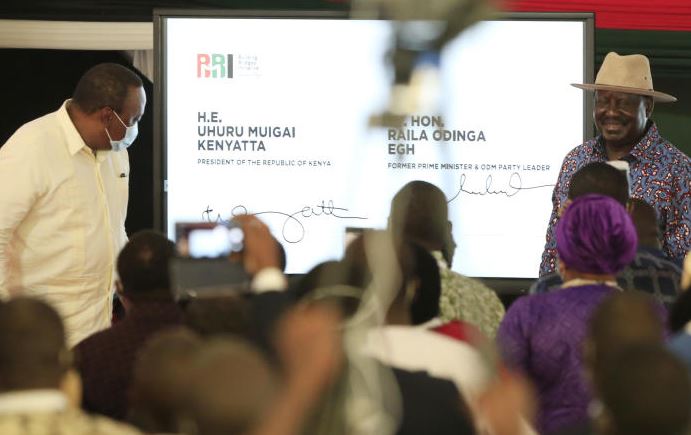×
The Standard e-Paper
Fearless, Trusted News

President Uhuru Kenyatta and Former Prime Minister Raila Odinga during the launch of the collection of signatures for the Building Bridges Initiative (BBI). [Stafford Ondego, Standard]
It is now emerging that time is of the essence in passing the Building Bridges Initiative (BBI) Bill.